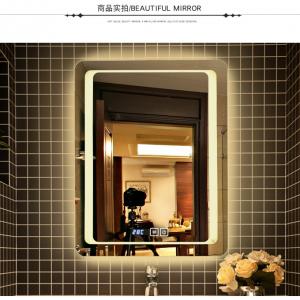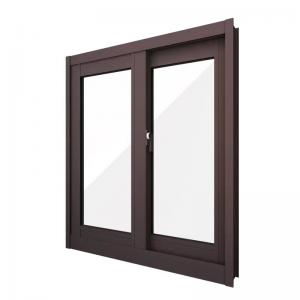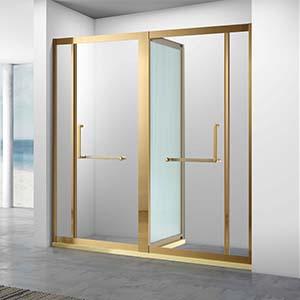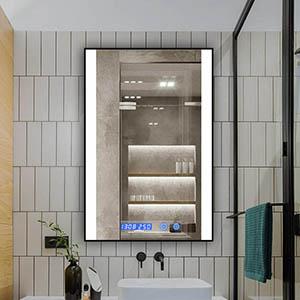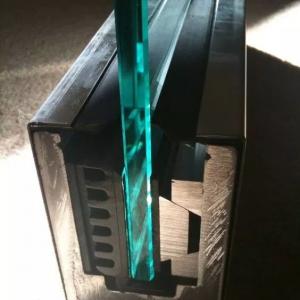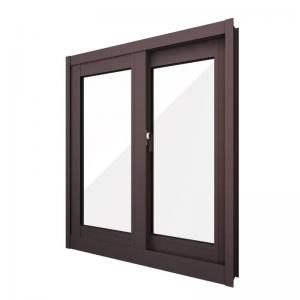Why Does Thickness Variation Affect Your Glass Purchasing Costs? (And Why It Matters!)
Why Does Thickness Variation Affect Your Glass Purchasing Costs? (And Why It Matters!)
If you're sourcing glass products – like mirrors, shower doors, windows, or glass partitions – you've likely encountered significant price differences seemingly tied to a single factor: glass thickness. It’s easy to wonder, "It's still glass (or a mirror!), why should adding a millimeter or two significantly change the price?" At Hiking Glass & Mirror, where we supply a wide range of products from standard mirrors and tempered glass to complex smart mirrors and shower enclosures, we understand this question is fundamental for buyers managing budgets.
The reality is, glass thickness isn't just a dimension; it drives manufacturing complexity, material usage, logistics expenses, and ultimately, your purchasing costs. Understanding this relationship empowers you to make smarter, cost-effective sourcing decisions. Let's break down the key reasons:
1. Raw Material Consumption: The Foundation of Cost
This is the most direct link. Glass is primarily made from sand (silica), soda ash, limestone, and other materials melted at extremely high temperatures. Crucially:
- Weight & Volume: Glass is dense. Increasing thickness adds weight exponentially. For example, a 6mm thick glass panel weighs significantly more than a 4mm panel of the same area. This directly translates to higher raw material consumption per square meter. More raw materials = higher base cost.
- Production Yield: Thicker glass can sometimes introduce more challenges during the melting and forming processes (like float glass production), potentially impacting yield rates and increasing waste factors.
2. The Transformation Process: More Work = Higher Cost
Processing glass into your final product demands more energy, time, and specialized equipment as thickness increases:
- Tempering: Creating tempered glass strength requires heating glass to near its melting point and then rapidly cooling it. Thicker glass absorbs more heat energy, requires longer furnace cycles, and puts greater stress on quenching equipment. This significantly raises energy consumption and reduces throughput capacity per tempering furnace cycle.
- Laminating: Making laminated (shipping weight) safety glass involves bonding two or more sheets with PVB or SGP interlayers under heat and pressure. Thicker glass requires more powerful presses, longer autoclave cycles (used to cure the bond under pressure and heat), and more interlayer material.
- Fabrication: Cutting, drilling, edging (grinding, polishing), and notching thicker glass demands stronger machines capable of handling the increased mass and rigidity. Tool wear is faster, processing times can be longer, and specialized heavy-duty equipment may be necessary.
- smart mirror Complexity: Integrating electronics into thicker glass substrates may require more complex mounting solutions or structural supports, adding to manufacturing steps and costs.
3. Logistics: Weight and Space = Dollars
Transporting glass is a major factor in your landed cost. Thicker glass impacts logistics profoundly:
-
Increased Weight: As mentioned, thickness drastically increases glass shipping weight. Heavier shipments mean:
- Higher freight charges from road, sea, or air carriers (often calculated by weight or volume, whichever is greater).
- Potentially fewer panels per shipping container or truck load.
- Increased fuel consumption.
- Reduced Volume Efficiency: Thicker glass takes up more physical space per panel within the protective packaging crates. This reduces the number of units that can fit on a standard pallet or into a shipping container, increasing the cost per unit for transportation. Shower door weight, especially in thicker, larger designs, is a prime example affecting per-unit shipping costs.
- Handling & Risk: Heavier, bulkier panels require specialized lifting equipment (like vacuum lifters) and more careful handling at every stage – from our factory floor to your receiving dock. The risk of damage during transit and handling can also be slightly higher, potentially impacting insurance costs.
4. Performance and Structural Requirements: The Hidden Value
While cost is driven up, thicker glass isn't arbitrary – it delivers crucial performance benefits justifying the expense when needed:
- Strength & Safety: Increased thickness directly enhances the structural integrity and safety of the product. Thicker tempered glass has higher impact resistance. Thicker laminated glass offers improved ballistic protection and post-breakage safety. Meeting stringent safety standards (like CPSC for shower doors or building codes for balustrades) often mandates minimum thicknesses.
- Rigidity & Stability: Thicker panels deflect less under load (wind, water pressure, human contact) or their own shower door weight. This is vital for large shower enclosures, frameless glass doors, shelves, or partitions where minimal bending is critical for aesthetics, functionality, and long-term durability. Thicker mirrors resist warping better.
- Acoustic Insulation: Thicker glass, especially in laminated configurations, provides better sound dampening properties.
- Thermal Performance: While primarily driven by coatings, thicker insulating glass units (IGUs) in windows/doors can sometimes contribute marginally to overall thermal resistance.
- Visual Clarity: For very large spans, thicker glass reduces visible deflection or "bow", ensuring a flatter, more optically perfect appearance.
Strategically Navigating Thickness & Cost: Hiking Glass & Mirror's Insight
So, how can you, as a buyer, optimize this? The goal isn't always the thinnest glass; it's finding the optimal thickness for the application:
- Define Performance Requirements: What is the minimum safety standard needed? What is the maximum allowable deflection? What are the structural load requirements? What size is the panel? Work with your supplier to understand the specs.
- Prioritize Needs: Is ultimate safety paramount (requiring potentially thicker laminated glass)? Or is moderate stiffness with cost-effectiveness the goal for a specific partition?
- Consider Total Cost: Factor in not just the unit cost, but the impact on logistics. Can thicker glass reduce your overall costs if it allows fewer supports during installation?
- Leverage Supplier Expertise: At Hiking Glass & Mirror, our team doesn't just sell glass – we help solve problems. Consult with us early in your sourcing process. Provide details on the application, required performance levels (safety codes, wind loads, etc.), and budget constraints. We can recommend the most cost-effective glass thickness combination balancing performance with your purchasing costs. This might involve suggesting alternatives like using laminated glass instead of massively thick monolithic panels for certain safety applications.
- Standardization: Where possible, designing with standard stock thicknesses can offer better economies of scale compared to highly customized gauges.
Conclusion: Thickness – A Fundamental Driver of Value
The variation in glass price factors due to thickness isn't a manufacturer's whim. It's a direct reflection of the underlying costs of raw materials, complex manufacturing energy inputs, and significant logistics challenges. Thicker glass consumes more material, requires more intensive processing, and costs significantly more to transport. Crucially, however, it delivers essential performance benefits like tempered glass strength, stability, safety compliance, and acoustic insulation where required.
Understanding this core relationship between thickness and cost is key to strategic sourcing. By clearly defining your project requirements and collaborating closely with an experienced supplier like Hiking Glass & Mirror, you can ensure you get the right thickness – optimizing both performance and budget efficiency.
What’s your biggest challenge when specifying glass thickness for your projects? Have you ever encountered unexpected costs due to underestimating the impact of thickness on logistics or processing? Share your experiences and questions in the comments below! We’d love to hear your perspective and discuss how we can help streamline your sourcing. Explore our full range of solutions at [Hiking Glass & Mirror Website Placeholder].
Keywords Used (with approximate 2% coverage):
- glass thickness
- glass shipping weight
- tempered glass strength
- glass price factors
- shower door weight
 English
English Russian
Russian